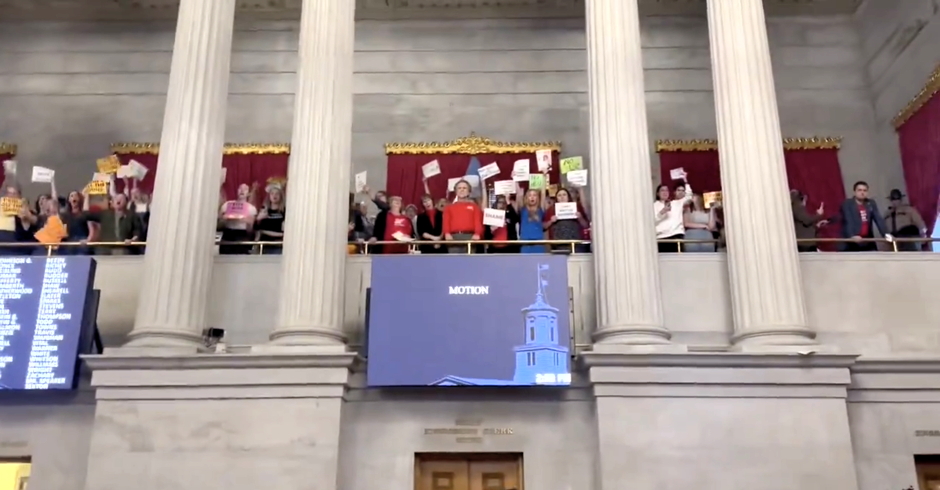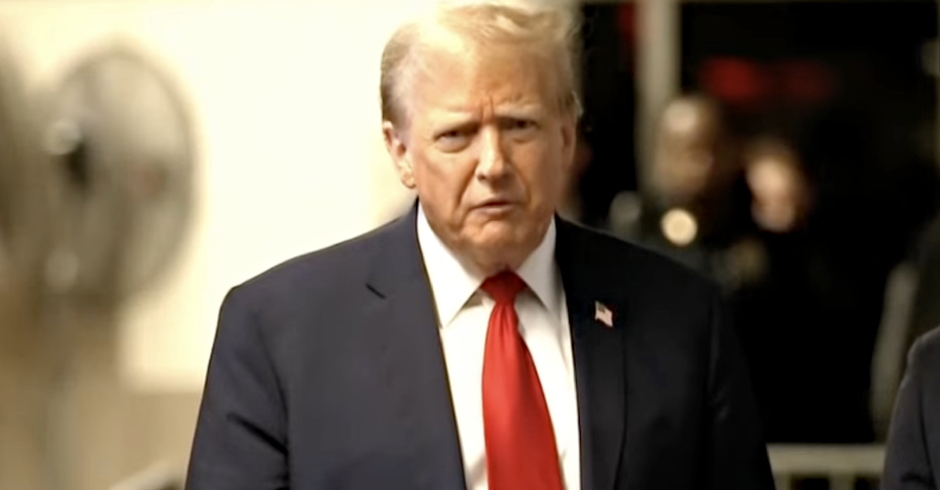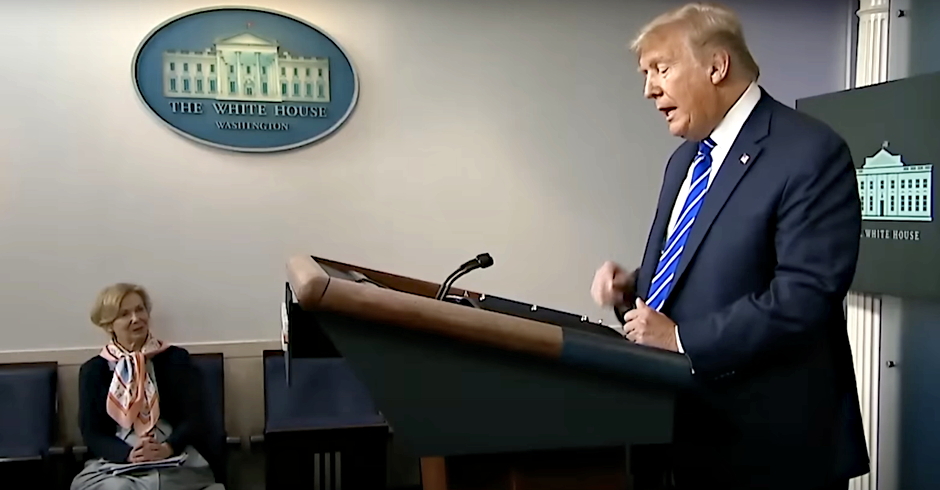Don’t Ask, Don’t Tell, Don’t Change. Don’t Win.
Why Former USAF Chief of Staff Merrill McPeak’s
“Don’t Ask, Don’t Tell” Memories Don’t Apply To Today’s Military, Or To Today’s America, And Will Make Us Lose Every Battle, Foreign And Domestic.
This week saw more momentum toward repealing “Don’t Ask, Don’t Tell.” Senator Joe Lieberman introduced his “Don’t Ask, Don’t Tell” repeal bill in the Senate. Congressman Patrick Murphy, author of the House’s “Don’t Ask, Don’t Tell” repeal bill, headlined HRC’s “Don’t Ask, Don’t Tell” Citizen’s Lobby Day. But in a New York Times Op-Ed, Merrill A. McPeak, the 74 year-old former Chief of Staff of the United States Air Force, who retired more than fifteen years ago, urged America to, “Don’t Ask, Don’t Tell, Don’t Change.”
“Don’t Ask, Don’t Tell, Don’t Change.” What an exquisite epitaph, that should be engraved on the tombstone of the conservative movement.
“Don’t Ask, Don’t Tell, Don’t Change.” It’s the very language and practice that embodies and explains America’s financial crisis, America’s housing bubble, America’s health care crisis, America’s eduction crisis, America’s infrastructure crisis, America’s misguided “War on Drugs,” America’s misguided “War on Terror,” America’s diminished world reputation, and, well, most everything else that’s wrong with America today. Not to mention, most everything that was wrong with the America of yesterday.
“Don’t Ask, Don’t Tell, Don’t Change” explains why the insurance and financial industries have been able to rule Congress without sufficient regulation.
“Don’t Ask, Don’t Tell, Don’t Change” explains why this country has a secret child homelessness problem, yet allows the bigoted policies of some states to deny same-sex couples the right to adopt.
“Don’t Ask, Don’t Tell, Don’t Change” explains when the NRA is quietly one of the most powerful and richest lobbyists in America, why school shootings have more than doubled over just the past few years, and why 32 Americans — eight of them children — die every day from gun violence.
“Don’t Ask, Don’t Tell, Don’t Change” explains why people like California’s vehemently anti-gay state senator Roy Ashburn, who represents a stridently conservative district, ultimately had to go down in flames, pulled over and arrested for DUI after leaving a gay bar,
“Don’t Ask, Don’t Tell, Don’t Change.” Frankly, it’s what head-in-the-sand ostriches and head-in-the-air, too-stupid-to-stop-drinking turkeys do. “Don’t Ask, Don’t Tell, Don’t Change” means we don’t move forward, we don’t solve problems, and we don’t win. “Don’t Ask, Don’t Tell, Don’t Change” means we all lose.
Keeping quiet about issues that need improvement is not only bad for America, it’s downright un-American. Imagine if the Founding Fathers told folks, “Oh, that whole taxation without representation thing? We’ve decided on a policy of ‘Don’t Ask, Don’t Tell, Don’t Change.'” America would still be an English colony.
Now, all that said, let’s look into what else McPeak is offering.
McPeak retired from the military in 1994, just one year after “Don’t Ask, Don’t Tell” was adopted. So, any experience with that law he may have had in his distinguished career would be minimal.
“I was one of the service chiefs when the “don’t ask, don’t tell†compromise was reached in 1993. Until then, every person coming into the military was asked questions directed at establishing sexual orientation, and admitted homosexuals were automatically rejected.”
(Ah, the “good ole days,” right, McPeak?)
Second, McPeak is 74. He comes from a different time, a different world. Americans, and the soldiers of today, are far more comfortable with gay men and lesbians than the soldiers of his day, which ended in 1994.
Remember 1994? The Menendez brothers had their first trial, Apple sold its first “PowerPC,” Nicole Brown Simpson and Ronald Goldman were murdered, Kurt Cobain committed suicide, and George W. Bush was first elected Governor of Texas. In 1994, a man named Marc Andreessen, founded a company called “Netscape,” which introduced its first version of something called a “web browser,” named the “Netscape Navigator.” And in 1994, Marc Andreessen spoke at the “first conference devoted entirely to the subject of the commercial potential of the World Wide Web.”
That was 1994, McPeak’s last year in the military. My, things sure have changed, haven’t they?
McPeak’s argues are that the military is not about civil rights. “Why should exclusion of gay people rise to the status of a civil-rights issue?,” he asks. He says the money we expend on training “people who were eventually removed on account of homosexuality [is] minuscule.” And finally, and most importantly to him: the military is not about the individual, but the team.
“[I]t would be a serious mistake to imagine that personal performance is what matters in combat. Combat is not a contest between individuals, like poker or tennis; it is a team event whose success depends on group cooperation and morale. So the behavior that concerns us is not individual achievement but the social dynamics of relationships and groups. The issue is whether and how the presence of openly declared homosexuals in the ranks affects the solidarity of the unit.”
Let’s repeat that.
“[T]he behavior that concerns us is not individual achievement but the social dynamics of relationships and groups.”
This is McPeak’s main argument, that “homosexuals,” (as he writes clinically and disparagingly,) adversely affect “unit cohesion.” That argument is not just plain false. It is outdated.
Taking McPeak himself to task, along with The Times, Media Matters says it best:
“[N]umerous studies have considered and debunked the unit cohesion myth and the Times itself has reported on a prominent study that found that allowing gays to serve openly “does not undermine unit cohesion, recruitment, retention, morale, or overall combat effectiveness.”
As they did last month, as well:
Award-winning Joint Force Quarterly essay: Unit cohesion argument “not supported by any scientific studies.” In an essay published in the fourth quarter 2009 issue of Joint Force Quarterly — which is “published for the Chairman, Joint Chiefs of Staff, by the Institute for National Strategic Studies, National Defense University” — Col. Om Prakash wrote of “don’t ask, don’t tell”: “[T]he stated premise of the law — to protect unit cohesion and combat effectiveness — is not supported by any scientific studies.” The essay won the 2009 Secretary of Defense National Security Essay Competition.
Face it, McPeak, the “team” doesn’t have the problem you feel they do with “openly declared homosexuals in the ranks.” Perhaps you do, but today’s soldiers do not.

Enjoy this piece?
… then let us make a small request. The New Civil Rights Movement depends on readers like you to meet our ongoing expenses and continue producing quality progressive journalism. Three Silicon Valley giants consume 70 percent of all online advertising dollars, so we need your help to continue doing what we do.
NCRM is independent. You won’t find mainstream media bias here. From unflinching coverage of religious extremism, to spotlighting efforts to roll back our rights, NCRM continues to speak truth to power. America needs independent voices like NCRM to be sure no one is forgotten.
Every reader contribution, whatever the amount, makes a tremendous difference. Help ensure NCRM remains independent long into the future. Support progressive journalism with a one-time contribution to NCRM, or click here to become a subscriber. Thank you. Click here to donate by check.
 |



















